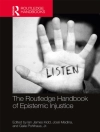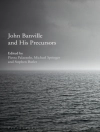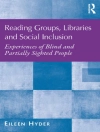Narrating Demons, Transformative Texts: Rereading Genius in Mid-Century Modern Fictional Memoir, by Daniel T. O’Hara, acknowledges that the modern conception of literary genius is probably most lucidly expressed in the criticism of Lionel Trilling. But O’Hara also demonstrates that certain important and widely read mid-century modern fictional memoirs subversively return to an earlier conception that emphasizes the demonic nature of genius, a conception that is associated with the occult and the visionary and embraces the vision of evil articulated in earlier literature. O’Hara argues that Thomas Mann’s Doctor Faustus (1947), Vladimir Nabokov’s Lolita (1955), and William Burroughs’s Naked Lunch (1959) all demonstrate an imagining of genius in art and in life that stands in stark and total opposition to the emerging post-World War II age of conformity. These influential works show that genius is inherently a dangerous reality, albeit a creative one. Despite its most transcendent appearances, the full immanence of this conception of demonic genius condemns the modern world to a Last Judgment that is every bit as severe as any envisioned in the Western religious traditions.
O’Hara Daniel T. O’Hara
Narrating Demons, Transformative Texts [PDF ebook]
Rereading Genius in Mid-Century Modern Fictional Memoir
Narrating Demons, Transformative Texts [PDF ebook]
Rereading Genius in Mid-Century Modern Fictional Memoir
Koop dit e-boek en ontvang er nog 1 GRATIS!
Taal Engels ● Formaat PDF ● Pagina’s 92 ● ISBN 9780814270455 ● Uitgeverij Ohio State University Press ● Gepubliceerd 2020 ● Downloadbare 3 keer ● Valuta EUR ● ID 8046505 ● Kopieerbeveiliging Adobe DRM
Vereist een DRM-compatibele e-boeklezer












